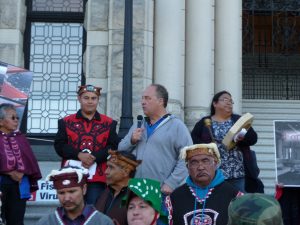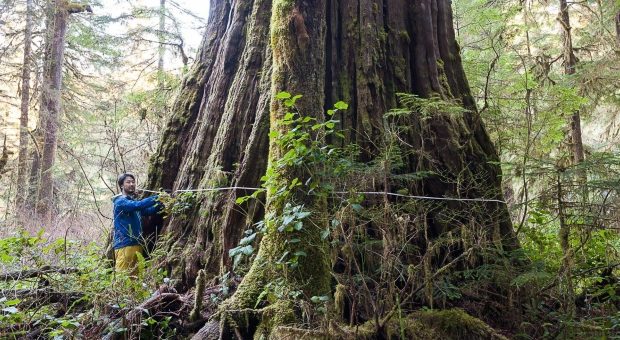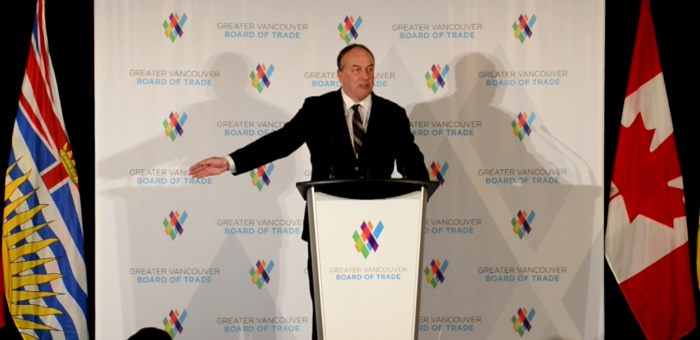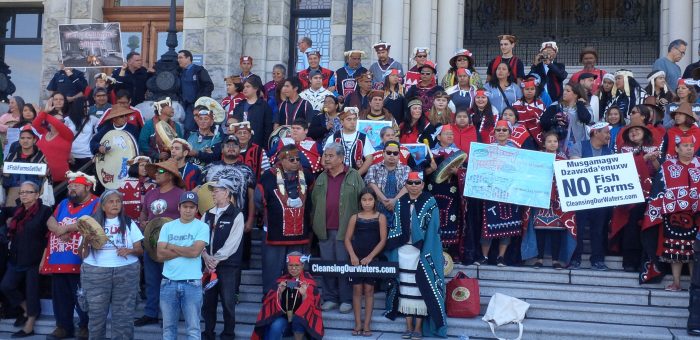Resource Development
Question Period: The influence of lobbying and corporate donations
Today in the Legislature I was up in Question Period. I questioned the Minister of Justice, Suzanne Anton, about the lobbying and donation practices of the fossil fuel industry and the effect on government decision-making. I also asked about reforms needed to regulate the lobbying industry in BC and bring it in line with federal standards.
My question follows reports in the media over this week that lobbyists are engaging in illegal donation practices on behalf of their clients, as well as a recent analysis that maps the influence of the fossil fuel industry in BC politics, highlighting extensive lobbying practices and vast amounts of political donations. Both reports can be found at the end of this article.
Below are the text and video of the exchange. I was disappointed with the Minister’s answers. She merely restated that we have a registry of lobbyists in BC. We do have a registry, but its usefulness as a tool of transparency is severely limited, since lobbyists are not required to report the meetings they hold with public office holders. Moreover, we have no code of conduct for lobbyists to regulate practices such as gift-giving to public office holders. The Office of the Registrar of Lobbyists recommended both of these measures, back in 2013, as important ways to make lobbying practices more transparent in BC. Yet the government has ignored these recommendations and the Minister of Justice was unwilling to engage on this serious issue.
Question
A. Weaver: Vast amounts of money are flowing from fossil fuel companies to both the B.C. Liberals and — to a much lesser extent, mind you — the B.C. NDP.
Between 2008 and 2015, 48 fossil fuel companies and industry groups donated $5.2 million to the government and official opposition and reported more than 22,000 lobbying contacts with public officials between 2010-2016. With seven of the top donors also ranking among the most active lobbyists, there is a substantial overlap between those who give money and those who get meetings.
To further that, 28 percent of lobbying by the top-ten most active lobbyists has been directly with cabinet ministers — an unrivaled level of access — and the Minister of Natural Gas Development is the most targeted member in the entire Legislature.
In light of this, my question to the Minister of Justice is this. How does the government expect the public to trust that their interests are being protected and that these practices are not buying lobbyists and their clients special treatment?
Answer
Hon. S. Anton: It may be that the member was not here yesterday to know that we actually established the first-ever lobbyist registry in 2002 to establish transparency so British Columbians could see who is doing the lobbying. There never was a registry before that. After some years of experience with that registry, we updated it in 2009, creating one of the strongest regimes for lobbyist registration in Canada.
The updates increased the registrar’s powers and duties so the lobbyist registrar now has the power to conduct investigations, to compel testimony and to compel documents. In other words, the lobbyist registrar has the tools that he or she needs in order to make sure that the registry is conducted properly and that the lobbyists are conducting themselves in accordance with the rules, which is what I expect, which is what we expect as a government.
Supplemental Question
A. Weaver: I’m glad the minister talked about the lobbying registry, because frankly, we are one of the weaker in the country of Canada. B.C. lacks rules to regulate lobbying practices and ensure transparency.
We know that extensive lobbying is ongoing in B.C., but we have no code of conduct for lobbyists. Moreover, we have no requirement in B.C. for lobbyists to register actual meetings with public office holders. All they have to do is register who they plan to lobby. Other jurisdictions in Canada have much stricter standards.
It’s clear to me that with our rampant cash-for-access system and allegations that lobbyists are engaging in illegal donation practices on behalf of their clients — largely to the B.C. Liberals but also to the B.C. NDP — that we need much more stringent rules. We need standards against which the public can hold lobbyists and their contacts in the government to account.
My question to the Minister of Justice is: will the minister commit to transparency on lobbying practices, including requiring lobbyists to report on actual meetings held with government officials and creating a code of conduct for lobbyists?
Answer
Hon. S. Anton: The matter that the member referred to about contributions is very clearly, if that were to happen, a breach not of the lobbyists act but of the Election Act. The Election Act in section 186(2)(b) says that “an individual may make a political contribution with the money of another individual, but must disclose to the individual required to record the contribution under section 190….”
In other words, you can make a payment on behalf of a third party, but the third party must be disclosed. It must be very clear that it is that third party’s money which has gone to the payment. That is a breach of the Election Act. It is very clearly a breach if that is conducted. I think that that’s the conduct the member is referring to.
In fact, to the lobbying act itself, the 2009 updates to the act put very strict and significant penalties into that act for breaches of the act.
Video from Question Period
Sources
Mapping Political Influence: Political donations and lobbying by the fossil fuel industry in BC, Corporate Mapping Project, Canadian Centre for Policy Alternatives. Available at: http://www.corporatemapping.ca/bc-influence/.
Lobbying in British Columbia: The Way Forward: Report on Province-Wide Consultations and Recommendations for Reform, Elizabeth Denham, Registrar of Lobbyists. Available at: https://www.lobbyistsregistrar.bc.ca/handlers/DocumentHandler.ashx?ID=447.
‘Fairly limited’ transparency rules for lobbyists in B.C., deputy registrar says, Liam Britten, CBC News. Available at: http://www.cbc.ca/news/canada/british-columbia/lobbying-lobbyists-b-c-1.4014551.
British Columbia: The ‘wild west’ of fundraising, Kathy Tomlinson, CBC News. Available at: http://www.theglobeandmail.com/news/investigations/wild-west-bc-lobbyists-breaking-one-of-provinces-few-political-donationrules/article34207677/.
Reinvesting in British Columbia’s Forest Sector
Despite today’s announcement that $150 million will be invested in reforestation, a wave of unemployment is sweeping across rural B.C. because of government policies that have devastated the province’s once-great forest resource.
Premier Christy Clark now says the appropriate response is to put forest industry people to work building roads and bridges. B.C. really needs a bigger vision than that – especially since the provincial government is complicit in the sector’s mismanagement in the first place.
In the late 1990’s and early 2000’s, a pine beetle infestation erupted. The pandemic was exacerbated by successive B.C. NDP and Liberal governments who pursued policies that created largely monoculture forests. Pine trees grow fast and the government encouraged their use as the “preferred” species for replanting huge swaths of land that had been clear-cut. At the same time, the government’s shortsighted forest fire suppression policies snuffed out fires that would have naturally created a more diversified landscape. (Forest fires play a vital ecological role and, where possible, should be monitored closely but left to safely burn.)
The result: huge plantations of pine trees flourished. As climate change reduced the severity of B.C. winters, they became perfect breeding grounds for pine beetles and the largest beetle attack ever seen in North America was unleashed destroying millions of trees over a massive area. As the epidemic spread, and the health of B.C.’s forests deteriorated, the government was forced to dramatically increasing the allowable cut.
In recent years, the decline of the province’s forests has been masked by the increased cutting of dead trees in so-called salvage logging – but there is no hiding the fact that nearly 60% of the merchantable pine has been destroyed by the beetle invasion. Today, even the dead trees are running out and across rural B.C. forest industry jobs have entered a period of rapid, devastating decline.
Recent labor force statistics show that while the number of jobs in Metro Vancouver are up, there has been a drop in rural B.C. The unemployment rate in Mainland/Southwest B.C. is at 5%, but it is 8.2% in Thompson-Okanagan and 10.5% in North Coast/Nechako. In December, Tolko Industries shut down its Nicola Valley sawmill, taking 203 high-paying jobs out of a small community that will struggle without them.
And that’s just the start of it.
Because of the declining timber supply, the province’s chief forester has been forced to reduce the allowable annual cut (AAC). In Prince George, the AAC is being reduced by 50%. In Quesnel the AAC is dropping to 1.6 million cubic metres from 4 million cubic metres. Last March, in the Merritt Timber Supply Area, the AAC was cut to 1.5 million from 2.4 million cubic metres.
If you reduce the number of trees being cut, there will be a corresponding drop in the number of loggers, truck drivers and mill workers who have jobs. The Truck Loggers Association recently heard at its annual convention that five or six pulp and paper mills will close in the next two to six years. Thousands of jobs will be lost.
Over the past 25 years, NDP and Liberal governments’ have tried to position themselves as defenders of the forest industry, by setting the AAC at unsustainable levels, instead of concentrating on value added and diversification. The consequences of this are now coming home to roost. Premier Clark’s plan to increase spending on infrastructure projects to address the economic divide between rural and urban B.C. may deliver much needed infrastructure but will not create a long term solution.
What rural B.C. really needs are healthy forests and a vibrant small/medium family business culture that can provide sustainable logging, support local economies and provide environmental diversity over the long term. That’s how communities grow and prosper.
We need to rethink our forest management in the context of the realities of the 21st century – global warming; technological change; international competition; not to mention the immediate issues of growing protectionism, and the soft wood lumber dispute. Our tenure structures date back to the 19th century, and our mills have been starved of investment over recent years. The investment that has taken place, has usually replaced people with machines.
Rather than manage our forests, the BC Liberals have toyed with privatizing them. It is worth remembering that in 2001, Mike De Jong, then Minister of Forests, told a meeting of silviculturalists that BC’s Crown forests would be “unrecognizable” when he and the Liberals were finished with them.
Our forests are our collective asset, and we need to ensure that first and foremost, British Columbians are fully benefiting from them, not just corporations and vested interests.
We need to start a new conversation about our forests. We need to ask:
- How do we maximize the benefits of our forest industry?
- How do we get the greatest value from our fibre?
- How do we ensure that our rural and remote communities are included in the benefits?
- What is the most effective long term management structure?
- How do we integrate indigenous people and communities in decision making?
- How are we going to manage sustainability, long term productivity, mitigating climate change and enhancing secondary manufacturing?
A redesign of our forest management is long overdue and would be priority of a BC Green Government. We need to truly end the war in the woods, and ensure that our forests work for all of us.
Speaking to the Greater Vancouver Board of Trade — A Vision for our Future
On Friday, February 3rd, I spoke to the Greater Vancouver Board of Trade. In my presentation I offered a vision for a prosperous British Columbia that builds on our strengths, not the weaknesses of others.
For those wondering about the direction that a BC Green government would take this province, please consider watching.
Video of Presentation to Greater Vancouver Board of Trade
Standing with the Musgamagw Dzawada’enuxw Nation on Open Net Salmon Farming
Today I had the distinct honour of standing with the Musgamagw Dzawada’enuxw Nation in demanding the removal of open net fish farms from their traditional territories. I went one step further in stating that a BC Green government would ensure that those holding permits for open net fish farming along the migratory route of wild sockeye salmon would be given 90 days notice that their permits would be revoked. In addition, and unlike both the BC NDP and the BC Liberals, the BC Greens will not accept corporate donations from those involved in the open-net Atlantic Salmon farming industry,.
 It’s not that the Musgamagw Dzawada’enuxw Nation and I are alone. In May 2015 I introduced a petition by 108,848 people who asked the government to please not issue licenses of occupation to salmon farms trying to expand in British Columbia. I also introduced a second petition signed by more than 100 business organizations across the province who supported the individuals who signed the larger petition. The business organizations argued that they are convinced by the published scientific evidence that open net salmon farms are a threat to B.C. wild pacific salmon.
It’s not that the Musgamagw Dzawada’enuxw Nation and I are alone. In May 2015 I introduced a petition by 108,848 people who asked the government to please not issue licenses of occupation to salmon farms trying to expand in British Columbia. I also introduced a second petition signed by more than 100 business organizations across the province who supported the individuals who signed the larger petition. The business organizations argued that they are convinced by the published scientific evidence that open net salmon farms are a threat to B.C. wild pacific salmon.
This doesn’t mean that we have to shut down salmon farming. Rather, it means that we have to start using closed containment systems that pose no threat to our wild salmon. In fact, we need look no further than the Namgis First Nation on Vancouver Island who have initiated a sustainable land-based salmon farming industry on their traditional lands.
Bill 25 – 2016: Miscellaneous Statutes (General) Amendment Act, 2016
It was a very busy day for me in the Legislature today. I was one of only two opposition members who spoke at 2nd reading to Bill 24 – 2016: Profits of Criminal Notoriety Act. I was one of only five opposition members who spoke at 2nd reading to Bill 23: Sexual Violence and Misconduct Policy Act, 2016. And I was one of only two opposition members who spoke at 2nd reading to Bill 25 – 2016: Miscellaneous Statutes (General) Amendment Act, 2016.
Miscellaneous Statutes Amendment Acts are omnibus acts that propose numerous minor changes to a number of existing pieces of legislation. Bill 25 is the third such act we are debating in this session alone.
Bill 25 proposes amendments to ten existing acts: the Agricultural Land Commission Act; the Assessment Act; the Protected Areas of British Columbia Act; the Environmental Management Act, the Income Tax Act, the Insurance Act, the Liquor Control and Licensing Act, the Local Government Act, the Mutual Fire Insurance Companies Act and the Ministry of Lands, Parks and Housing Act.
While many of the proposed changes are minor, as you will see from the text and video of my speech that I reproduce below, I have serious reservations about two critical amendments. I also have a number of questions on other amendments that I will defer to committee stage.
Text of Speech
A. Weaver: I rise to take my place in the debate on Bill 25, Miscellaneous Statutes (General) Amendment Act, 2016. Like so many of these other miscellaneous statutes amendment acts, this act is a potpourri of changes to a variety of acts, with some additional transitional provisions attached to them, as need arises.
The act amends ten acts: the Agricultural Land Commission Act, which I’m sure the member for Saanich South will have some comments on; the Assessment Act; the Protected Areas of British Columbia Act; the Environmental Management Act, the Income Tax Act, the Insurance Act, the Liquor Control and Licensing Act, the Local Government Act, the Mutual Fire Insurance Companies Act and the Ministry of Lands, Parks and Housing Act.
Under the ALC, there are two amendments to the ALC Act. The first is an amendment that will require the ALC to obtain the owner’s consent before excluding land for the reserve. This is mostly applicable in boundary reviews.
The second, as the minister mentioned, adds a regulation-making authority so that the commission can provide clarity to farmers about agritourism activities — for example, a wedding on a farm. Regulations on these are expected this spring.
However, there is a clause that does raise some concern, and that’s clause 1.3 in this bill, which I’m sure we can explore further at committee stage. This seems to allow the commission to have a loophole so that the consent by owners is not actually required to remove land from the ALR. I’d be interested in exploring what the government has in mind with respect to the inclusion of section 1.3 further at committee stage.
In terms of the Assessment Act, the amendment for this will give the Lieutenant-Governor-in-Council the ability to prescribe assessed values for certain restricted use properties. The change is designed to ensure that Crown corporations, either provincial or federal, on Crown land are paying their fair share of property taxes. On this, I think there will be a broad agreement as these are fine changes.
Similar with the Local Government Act on page 5 of this bill, the amendment there fixes a mistake that was done in 2015 under the Statute Revision Act. It removes a contraction that exists presently.
Under the Environmental Management Act, there is an amendment which gives the flexibility to the minister to be able to update area-based management plans and improve permitting certainty within those areas. Specifically, a director is given the power to amend the permit after consultation with the minister. I, again, see no problems in support in this aspect.
Then we come to the Protected Areas of B.C. Act, page 7, which is troubling. The amendment here reduces the size of Finn Creek, of the park there, so that the Kinder Morgan expansion can continue planning its route. The proposed boundary adjustment will not be brought into force unless the NEB, of course, approves the project, the five conditions are met, and the province has issued an environmental assessment certificate, as the minister pointed out.
The park is reduced by a couple of hectares, but this reduction will cut a line directly through the northern section of the park. This follows Trans Mountain’s request to the province to amend various parks for its proposed route in 2014.
Obviously, I will be opposing this particular amendment. This is precluding…. Despite the fact that the minister is giving us the assurance of the government that this will not be brought into force unless the NEB and the five conditions are met, the reality is that we are putting it in place now, and frankly, that sends a signal that government is moving forwards to get to yes on a project that the majority of British Columbians realize is simply not reconcilable with their values.
To turn the port in Vancouver, through the Burnaby facility, into one of the largest shippers of heavy oil in the world. It’s simply not consistent with the values of British Columbians. This particular amendment is troubling in that it’s sending a green-light signal — that in its desperation to get to yes no matter what the question is, government is already starting to introduce legislation to amend parks.
Under the Income Tax Act, I find this very troubling as well. Here, there’s going to be provisions for a transitional period that will allow the film and television industry to adapt to the changes in tax credits recently announced. The amendments reduces the digital animation, visual effects and post production tax credit from 17 to 11 percent of the amount determined by the taxation formula.
In my view, this is troubling, because in doing this, what government is sending is a signal to an up-and-coming vibrant sector that: “You know what? You’re not as welcome as you used to be.” It’s early. It’s too early to be clawing back credits to an industry that is beginning to blossom. A 21st century economy industry in this province of British Columbia that we are known for internationally, beginning to emerge, and this government is now cutting out its heels, taking out its legs in the process.
Interjection.
A. Weaver: The Minister of Health doesn’t think so, but I would like it hear the input that I’ve…. Rather, I’d be delighted to share the input I received from the industry with respect to this particular cut. It is troubling. It is troubling when we are doing whatever we can to literally give away our natural gas resources to foreign entities, who otherwise would not be here and still are probably not going to be here, even though we’ve given away the farm.
Here we have an industry — a home-grown industry, jobs in B.C. industry, distributed jobs in B.C. industry — and we’re saying: “You know what? Your time is over. We’re going to continue to double-down on the falling stock of liquefied natural gas.” Despite the fact that Australia is years ahead of us. Despite the fact that China is now a seller on the international marketplace. Despite the fact that not a single LNG facility has been approved. Despite the fact that each and every one of the promises made by this government leading to the 2013 election has been broken. Every one of them.
Instead of saying: “Plan B. We need to move towards a 21st-century economy that builds on the strength of what we are good at here in B.C. — innovation, creativity, tech, bringing tech together with resource sector….” No, no, no. What we’re going to do is actually is chop them down at the knees just as they’re getting going.
To the Insurance Act — there are some changes there as well and, also, to the Mutual Fire Insurance Companies Act, neither of which I found to be particularly troubling. Just a few minor amendments there.
We’ve got the Ministry of Lands, Parks and Housing Act here. The amendments clarify B.C. Housing authority to provide support services and manage multipurpose developments that include housing and non-housing components. It allows the ministry to include land development related to housing. It also expands the powers and duties of the British Columbia Housing Management Commission to include social and other housing services.
There’ll be some questions at committee stage. But because these amendments came under a natural gas development amendment section, they may be worthy of exploring in a little more detail. I’m wondering whether or not this is actually something to do with housing specifically for the natural gas industry, as part of our, frankly, continuing generational sellout as we try to do whatever we can, whatever it takes, to get to yes, no matter what the question.
Liquor Control and Licensing Act, page 15. This amendment is, again, one that I see no major concerns in. It gives the general manager of the liquor control and licensing branch the ability to reconsider liquor enforcement decisions. The grounds, of course, for reconsideration are to be set out in regulations like much of what we’re debating.
This amendment means that the enforcement decisions will be reconsidered without the necessity of having to apply to the court for a judicial review. There are a number of guidelines and prescribed grounds that are to be established by the general manager for these amendments to work. Another piece of legislation there, an amendment, that I think will work well.
Taken together, there are a couple of troubling sections — notably, two in this overall bill. Obviously, I’ll be supporting the bill at second reading so that we can actually vote upon the individual sections at committee stage and vote them down accordingly.








